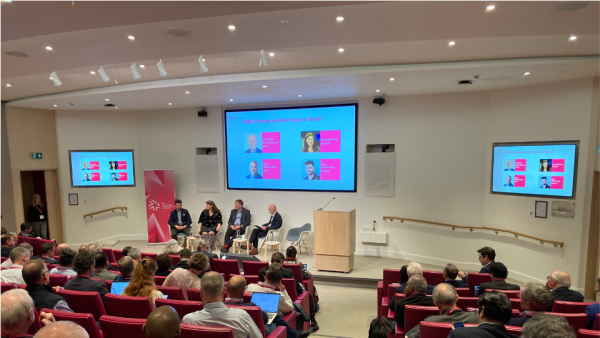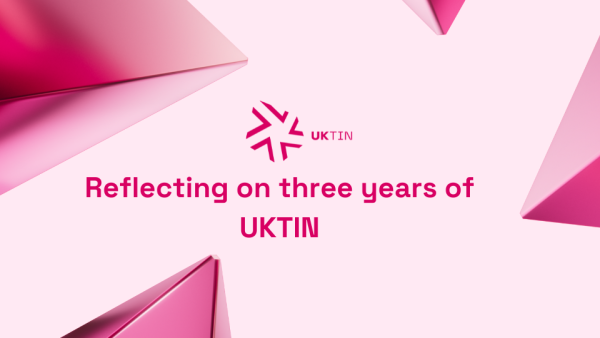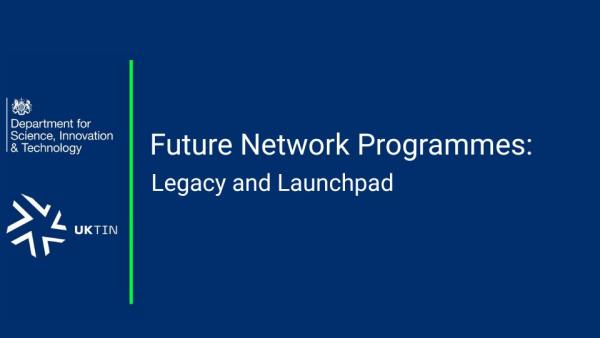Designed to be an informal conversation that provides a glimpse behind the scenes, UKTIN speaks to the consortium about activities of the last three months, with a focus on MWC Barcelona.

1/ Please explain what your organisation has been working on during the last quarter.
Mario De Miguel Ramos, Cambridge Wireless: “We launched the Supplier Specialist Guidance service, which we are very excited about. Even though UKTIN hasn’t publicly launched yet, we have already started helping companies with signposting and matchmaking. The activity on the marketing and communications side has also been phenomenal. There is going to be a shiny new website launching soon to support and help the ecosystem. We have also delivered a couple of events, including the launch of the ONE competition on behalf of DSIT.”
Kishan Nundloll, Digital Catapult: “From DC’s point of view, we have been organising and appointing Chairs for our expert working groups (previously known as special interest groups). Since we last spoke, we have formed and agreed on multiple new groups that we are in the midst of recruiting for. We now have six out of eight expert working group chairs and are busy working on appointing the final two. Once this has been finalised, we will put together the remit and the scope for what the groups will achieve. Four will be launching fairly soon, on the 12th of May, which is really exciting.”
Jon Hunt, University of Bristol: “It’s been an incredibly busy and productive quarter – as we continue to work strongly towards the delivery of Bristol’s work packages. We’ve been building the UKTIN Innovation Platform, through which telecoms start-ups, scale-ups and innovators can reach specialist advisers and access the Innovation and Investment Workout training programmes that will be delivered with our partner SETsquared. We’ve also made major strides forward in designing the UKTIN Research Capability Discovery Service - assessing user requirements, analysing other tools and identifying potential data sources. Our Smart Internet Lab has also secured £6m of funding from the Engineering and Physical Sciences Research Council (EPSRC) to develop Future communications systems including 6G, faster internet access and cloud computing.”
Lesley Holt, WM5G: “We undertook a review of the telecoms ecosystem from a skills, training and entrepreneurship perspective to inform our plans and activity. Then, we had a deeper dive into the skills, workforce and employment barriers to UK telecoms innovation. I’m excited now to be moving to a more proactive approach armed with the insights from that work: what can we do to address some of the key findings? Understanding the challenges and opportunities within the sector to convene others and facilitate actions will make a real difference. On this note, we have already set up the UKTIN Clusters group and held the kick-off meeting, well ahead of the June target date. This is an important group of key stakeholders with representation across the regions and nations – it is crucial that our plans represent the whole of the UK.”
2/ Has anything within the telecoms ecosystem particularly caught your attention?
Ramos: “We are heading into turbulent times in terms of funding. This will have an impact on companies, especially start-ups and we need to be aware of that. We need to be very alert to the situation and do everything we can to help.”
Nundloll: “From our point of view, the recent change in governmental departments. Though this may not have had a huge impact on day-to-day operations at DC or UKTIN, it is still important to understand where we sit and what type of role the different branches will play in the ecosystem going forward.”
Hunt: “The FT reported that the German Government is reviewing the security risks posed by Chinese components already installed in the country’s 5G networks and whether a change in the law is required. It will be interesting to see how wide-reaching this review goes – assessing just sensitive core networks or more widely accessed networks. Alongside this, how could I not mention AI and the highly anticipated launch of GPT-4 in March?”
Holt: “A recent study from The Engineer reported that less than three per cent of telecoms engineers in the UK are under the age of 35, the lowest result amongst all the engineering sectors, and that 59%, of UK telecoms engineers, are over 50 years old. Gender diversity is also an issue within the industry. Though this is something we suspected, the extent of the challenge is quite surprising. Attracting a diverse range of talent into the sector is something we need to be grappling with.”
3/ What can the UK expect to see over the next quarter?
Ramos: “We’re expecting UKTIN to accelerate. We have been launching services and soon will be going public. This is going to have a huge impact on the UK. For example, we will be signposting companies, helping them to promote and build successful consortiums. There will also be a ramp-up in communications, events and services. UK businesses in particular will benefit from this, especially start-ups and entrepreneurs.”
Nundloll: “We’re going to see the evolution of UKTIN being promoted across the industry: the launch is on the 27th of April, in London. That’s huge for the UK. The working groups and the cross-governmental departments will incorporate research and innovation in telecoms, building on learnings. This is when it gets fun! The output is exactly what the UK needs to see going forward.”
Hunt: “The UKTIN Innovation Platform will be ‘open for business’, with the first Innovation Workout taking place in May. This transformative training will enable early-stage telecoms start-ups (including those looking at downstream applications) to align their business growth with emerging opportunities in the UK telecoms market, connect with potential partners in the telecoms value chain and understand the market dynamics that will drive profits in the decade ahead. Dedicated investment training will follow shortly.
Also, Professor Dimitra Simeonidou and the team will deliver a report which puts forward recommendations for the UKTIN Research Capability Discovery Service based on the findings of detailed analysis of user requirements based on stakeholder interviews, similar databases, content and potential data sources. The outputs of this study will be used by a new team within the University of Bristol to develop a full specification and roadmap for the database and tools.”
Holt: “We will be launching the UKTIN Talent group in June, bringing together key figures from across the UK to raise awareness of the skills, talent and entrepreneurship opportunities and challenges the sector faces, facilitating collective problem-solving and acting as a guiding mind for the industry, for the benefit of all. Our priority now is to engage stakeholders and gain representation of interested parties across industry, education and skills providers.”
4/ The annual trade show MWC Barcelona – always a significant milestone for the sector – took place this past quarter. Whether you attended or not, what was your key takeaway from the event?
Ramos: “I’m very used to these tech conferences but my goodness, MWC was incredible. It was great to be given the chance to talk about UKTIN and promote our work. But I also gained many crucial takeaways in terms of preparing for UKTIN’s official launch and moving forward.”
Nundloll: “I was expecting it to be grand but honestly, I was truly blown away. It’s hard to describe how impressive it is. So many people were there to share their insights, and everyone seemed to be very interested in UKTIN and what it will bring. It was a genuinely wonderful event. It was exhausting but so worthwhile. The break into diversity and presentations were brilliant. I’m not exactly a tech expert but I learned a lot about what the future will bring.”
Hunt: “Even though I didn’t attend, it was great to hear that some of the telecom companies from our ecosystem were there making waves. For example, Accelercomm, which is a spin-out from the University of Southampton, one of our partner universities within the SETsquared Partnership: it’s been great to see its progress from the research which was shaped through the ICURe Programme to where they are now having raised £8.8m investment, with a team of 35.”
Holt: “Unfortunately, I didn’t attend either but our Connectivity Director, Chris Hudson did. He said: “There were many discussions around 5G, the use cases, the take up, the coverage, the commercial risks and so on. But the key takeout for me was the challenges with fixing the skills and training elements of the sector. I explored this further in the networking sessions with the senior executives of the MNOs and solutions providers alike; the time spent was invaluable, helping me to be able to build out a plan as part of our UKTIN commitment.”









